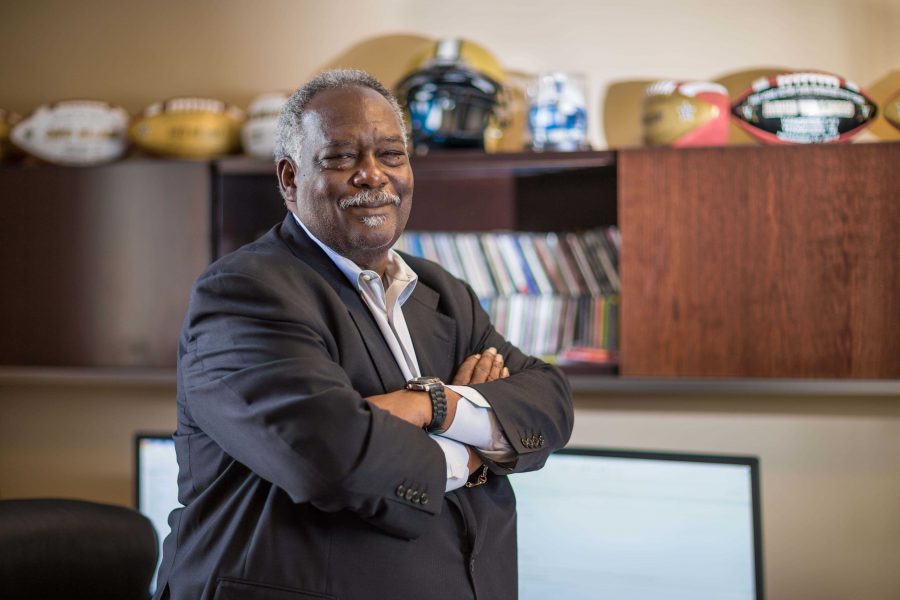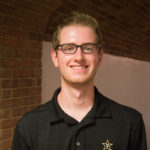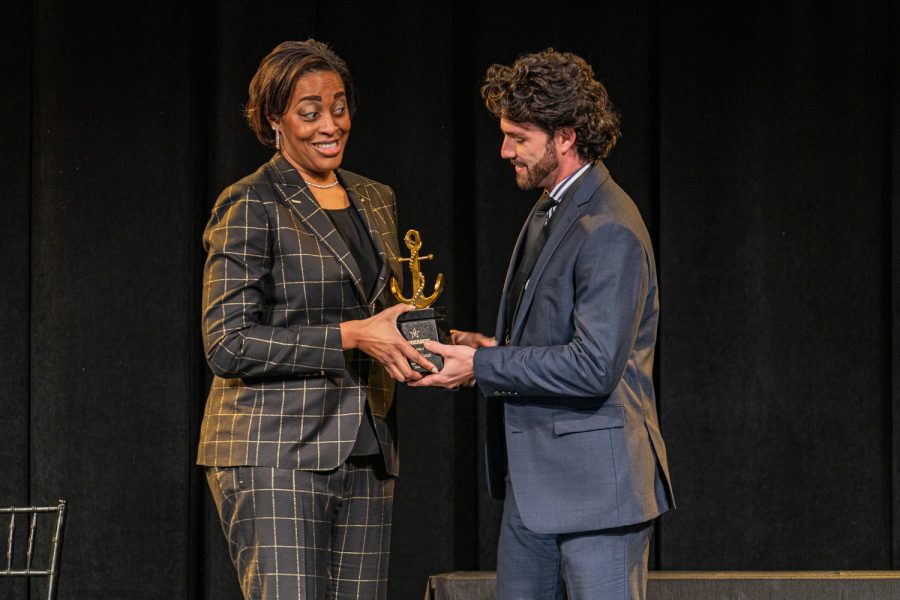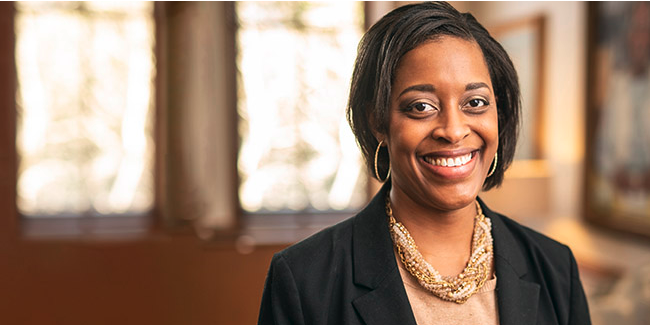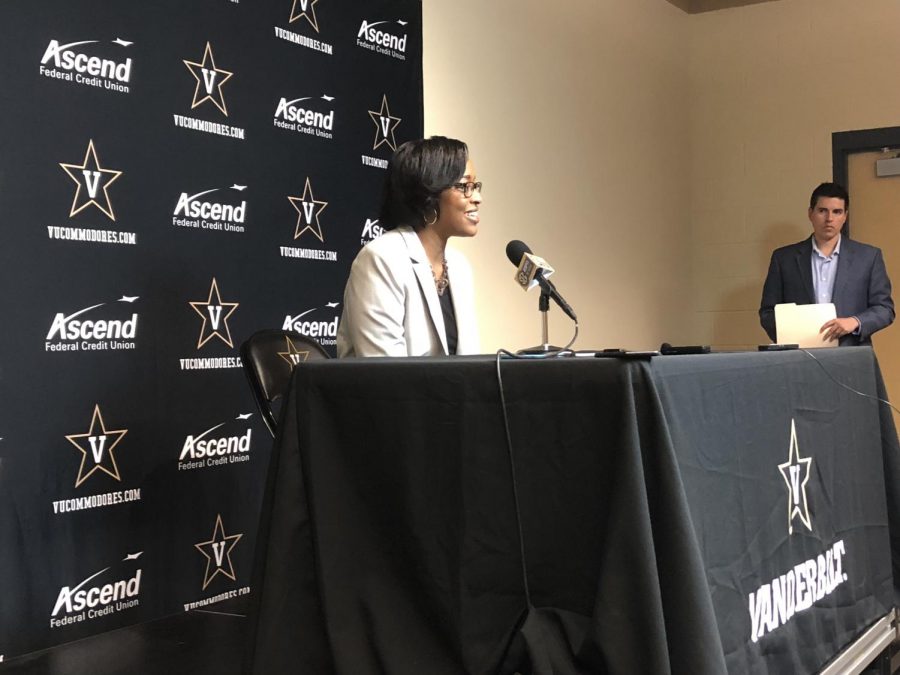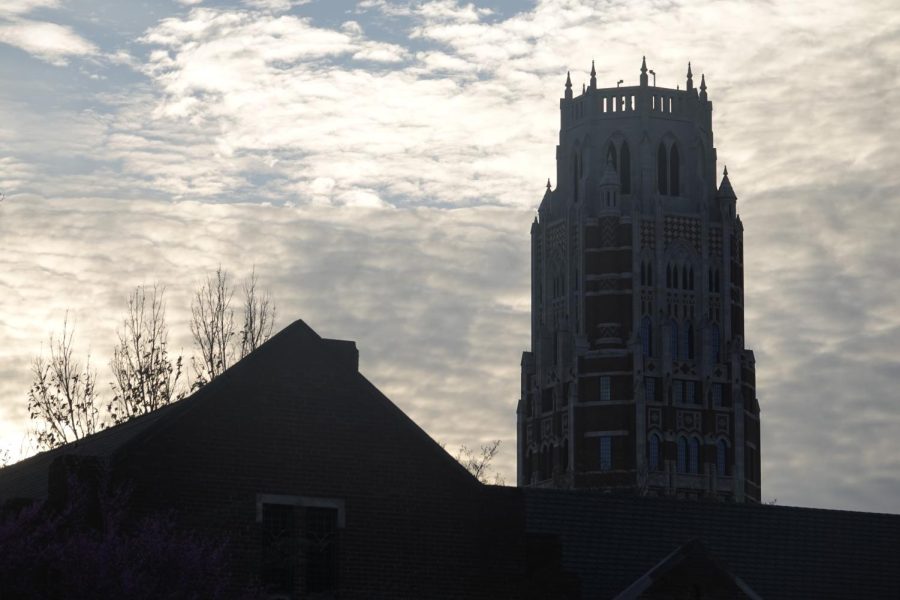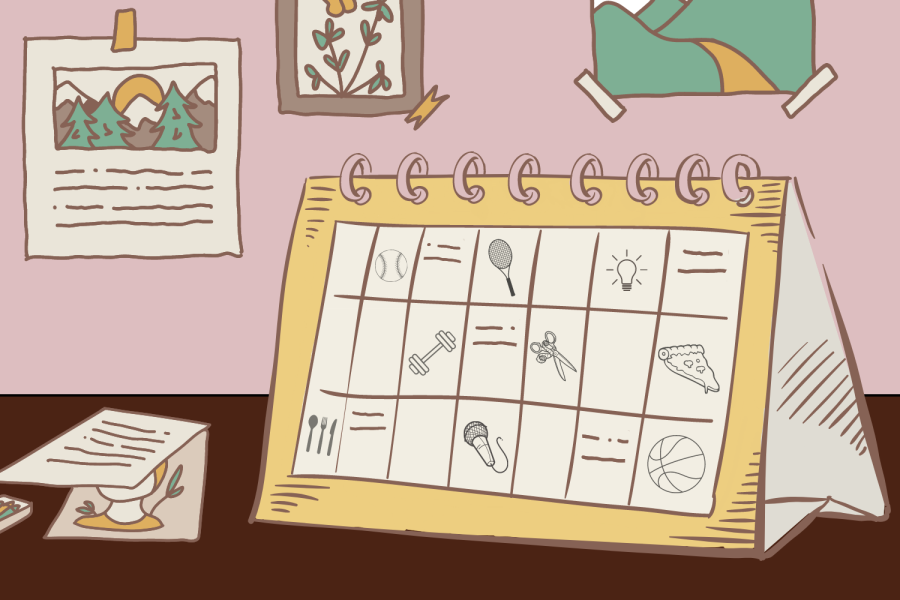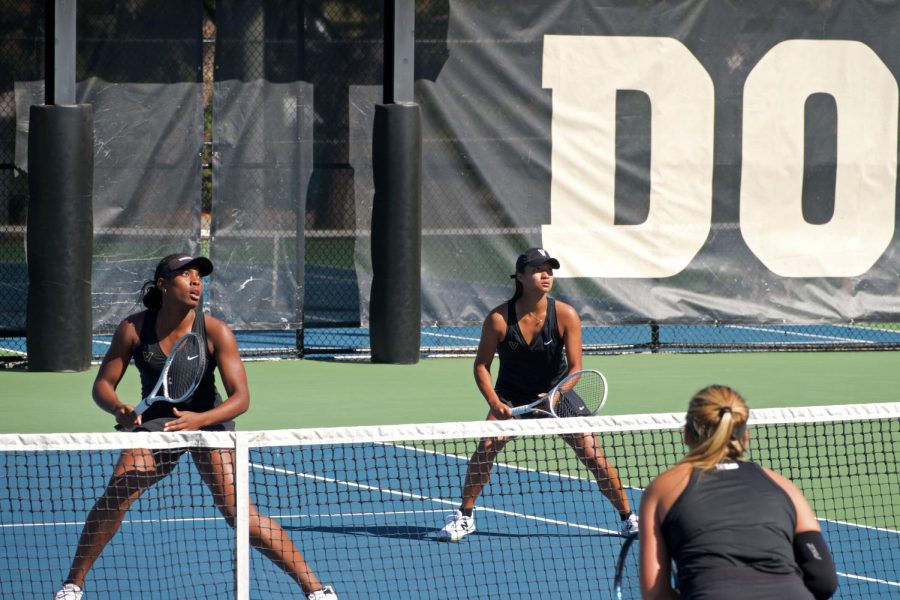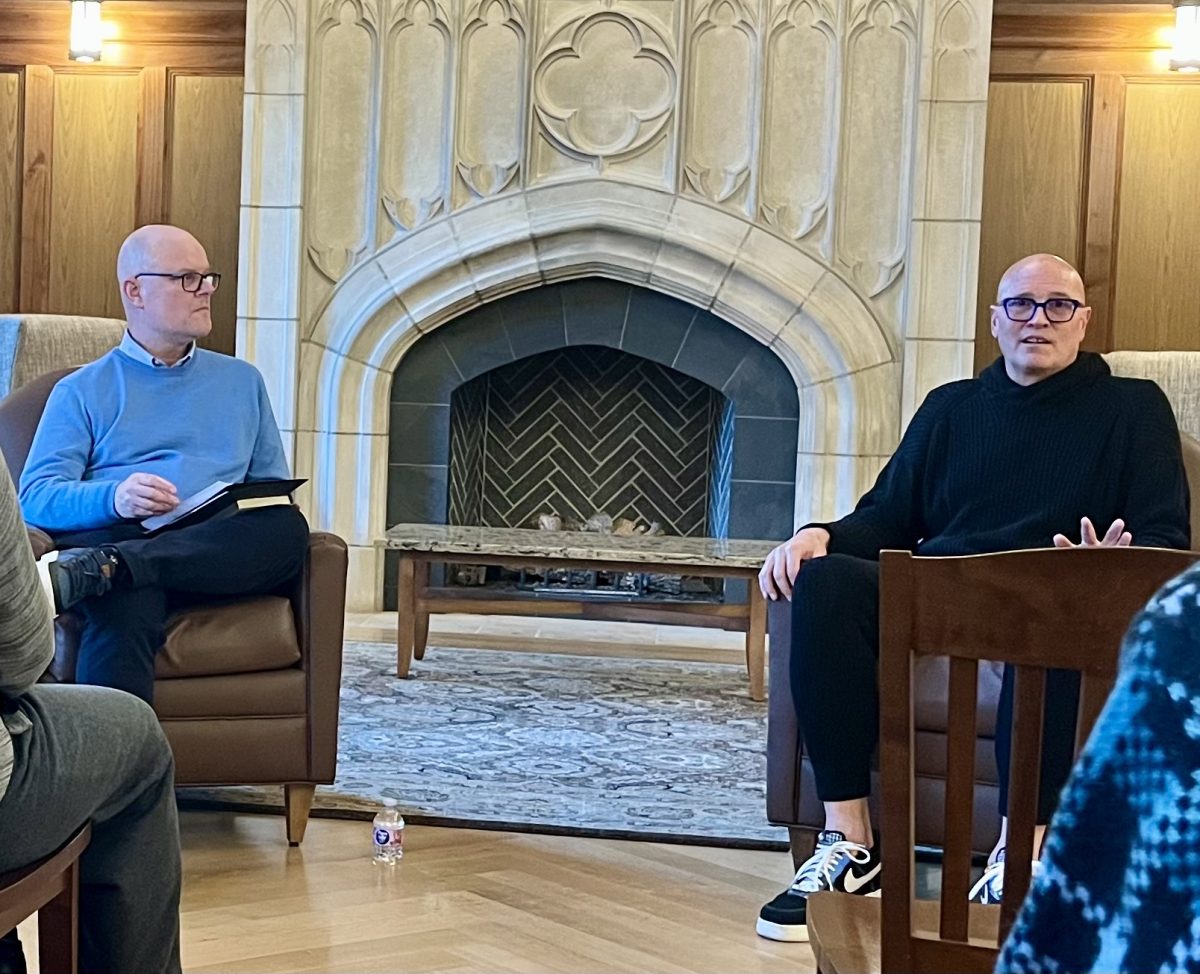Welcome to State of the ‘Dores, a new series from the Vanderbilt Hustler sports staff.
Vanderbilt Athletics have never been stronger on the field, but with that success have come questions about the infrastructure and support systems surrounding Athletics.
This series will try to delve into the heart of the issues at hand, find out where Vanderbilt has been successful and unsuccessful, explain why things are happening they way they are and how the Athletic Department can evolve into the future.
Our series begins with part one of a candid Q&A with Vice Chancellor David Williams. Last Monday, I sat down with Williams to discuss the state of Vanderbilt Athletics and his vision for the department.
Here is part one of that interview. Stay tuned for part two coming soon.
Cutler Klein: 2017 was overall a pretty successful year for Vanderbilt Athletics. What are your thoughts on the calendar year that has just passed?
David Williams: Well, it’s an interesting constraint because we play in such a tough conference. If you can do well in your conference, you probably have done well. We didn’t have a bad year, we ended up with four conference championships, one of them wasn’t the SEC, our bowling team bowls in the Southland conference. We won that conference for the second consecutive year. We won four conferences and we had four teams that basically ended up in the top 10 in the nation, which is really an accomplishment.
Yeah, I think overall it was a good year. We always want more. I think it was a surprise for some that our Men’s Basketball team once again made it back to the tournament and we kind of thought we’d go a little further, as they were playing at the end.
Football made it into a bowl game, and that was only the eighth bowl game Vanderbilt’s been in. We would have liked to have done better in that bowl game, but overall I thought the year was good.
And then we had some emerging things. I think probably the one that really stands out is you look at how Women’s Tennis maintained being one of the top the programs in the year, how Men’s Golf has emerged to be one of the top programs. And then you’re looking at the emerging of our Women’s Soccer, which we really saw come through this year.
CK: Looking at Men’s Basketball, one of the big developments this year was actually what’s going to happen in 2018 with Darius Garland, Simi Shittu and possibly Romeo Langford. When you brought in Bryce Drew to be the Men’s Basketball coach, did you think that he would be able to pull off what’s probably going to be a top-five, possibly even #1 recruiting class in one of his first few years?
DW: I don’t think anybody knew it would be that quick. I mean, I think that we certainly thought that he would have that ability. He certainly was a good recruiter at Valpo. When you start to think about those sort of things, he had all of the requirements in there. A lot of the kids are interested in talking to somebody who’s played in the league. Even now, it’s amazing that some of the young people still say “I remember The Shot. I read about it, I saw The Shot.”
So, it’s that function of how do you get in the door? How do you convince them? What style of play do you have? I think we saw that in the first year, that it was going to be upscale. These kids are going to fight. He’s surrounded himself with a great staff. Let me put it this way: I was not going to be surprised that we were going to have a top-five class. I didn’t think it would be in the second year.
CK: Football was one win from a bowl game this year. Obviously, not where you want it to be given the bowl game last year. Things are already looking up for next year, you have a recruiting class that’s much better than the last one. Do you still have full confidence in Derek Mason and what he can do to change things up a little bit?
DW: Yeah, and I think what Derek has been going through is sort of what I would call, I mean, when you think of college as a student, you think of it as a four-year process. I think what people have to understand and coaches have to understand that. I think Derek now is understanding what the real difference is between having an all freshman team, or predominantly freshman team and a predominantly senior team. Right off the bat, one would think “Ah, the Senior team, that’s the one.”
Well, maybe, if you do it a certain way. I think he’s now got his full scale of “Ok, I’ve had the teams that were very very young, very very old if you like it four years. Where is that sweet spot?” So, yeah, and I think he has really increased the recruiting. I think the other part that’s been so good is the real development from an offensive point of view. We’ve got a guy in there that understands offenses, that basically can run an offense. I think with Shurmur we’ve got a great quarterback who basically can manage a game. I think the best is still to come.
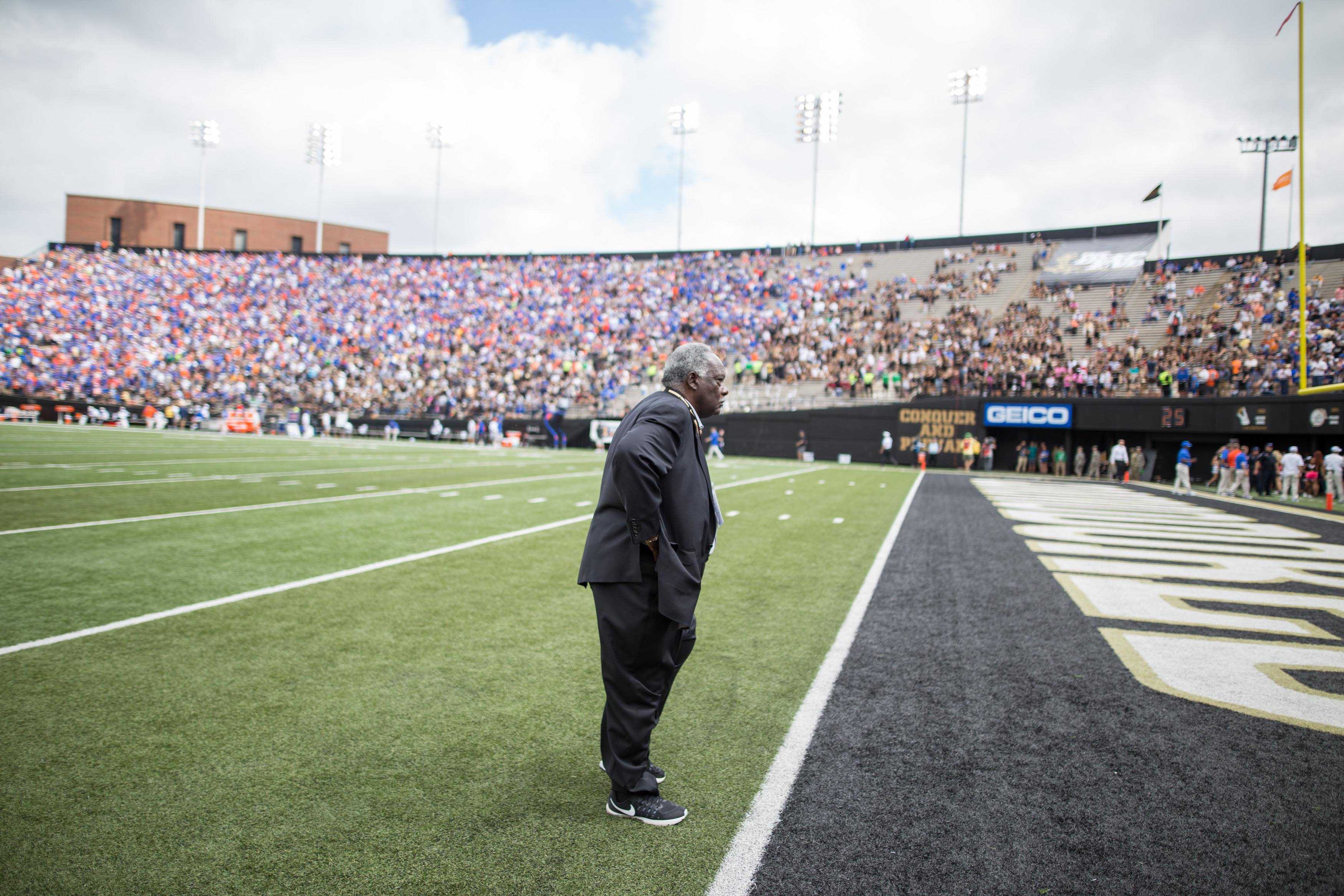
CK: Looking at the department as a whole, these last few years, athletics has never been better. Football is going to bowl games, more NCAA Tournament appearances, even in sports like Tennis and Men’s Golf they’re winning. Do you feel like, in your tenure here at Vanderbilt, that the standard has been elevated for Vanderbilt Athletics?
DW: Yeah, I think we’ve sort of taken it to a point. I think you’ve got to be careful with that because I really do believe that’s a tricky sort of thing. To some degree, the hardest part is to stay there than to get there. I think in some cases we had some low-hanging fruit in the sense that, I was telling somebody the other day that when I first came here, the general chant at some games I would go to was “That’s okay, you’ll work for us one day.” So, it really was a mindset of how you change a culture, how you change expectations.
The interesting piece of that is we have created a higher expectation now, and that’s what you want. But, that means that you have to take your game up higher. I think the real test of what we’ve done is can we maintain it and can we build on it? It’s nice to think that while this is a better time than yesterday was, you’ve really got to think about what tomorrow’s going to be, because the expectation, not only from the fanbase and the students and the faculty and the staff, but from us, is much higher. It’s kind of interesting, when you never win a national championship, winning one is real exciting. After you’ve won one, not winning one the next year doesn’t feel good.
CK: Baseball has a beautiful new facility. You mentioned back in October through the Stadium debacle that those are the kinds of projects you wanted to prioritize in terms of capital fundraising. Is that something you’re eyeing for football or basketball or other sports?
DW: Yeah, and a couple of things we’re thinking about before we did baseball, we did a lot for the golf teams out at the course. I would say that the two things that come to mind right off the bat is that we have a great tennis program and of course our Women’s Tennis team has won the championship, came close to winning another one. We’ll have a real good team coming back. One of the things that we’re starting to get closed out on is being able to host the big games.
We’ve never hosted the NCAA Finals here. So, one of the thoughts of it is what would it take, and really it would take is actually developing two more outdoor courts. That’s something to look at.
I would say the thing that really jumps at you, though, was Memorial. I would say that, really what I’ve been thinking about and have some meetings coming up this week, is how do we keep the magic of Memorial, but actually make it a better place? Memorial will be something that I think we will be looking at.

CK: You mentioned back then that when you get the funding for these kinds of things that it doesn’t come from the university. What is the fundraising process for something like the baseball facility and for these other things?
DW: Generally what you do is your sort of get a project and you say “Okay, what are all the things you want?” If it’s for a sport, the coach and the kids are asked “What do you guys want? What do you need?” Sort of maybe a 1-10 in that project. Then you have to say “Okay, let’s attach a price tag to that.” Okay, that’s $18 million. What we then do is we talk to our fundraising people and ask how much of that do you think you can raise? Well, we always say if it’s $18 million then raise $18 million. They might come back and say they can raise $15 million. Then you have to sit down and say two things: One, if there’s a $3 million difference, do you reduce the project down to that or can you see an ability to pay for that $3 million through your budget over the number of years?
Then you have to look at if that $15 million or $18 million whatever it is is coming in, it’s going to come in over 3-4 years, so you’ve got to basically make sure you can carry that load. Then you go out on the market. In baseball, that’s a good project because we raised every penny of it. We had to supplement for timing, but we never had to supplement our budget into it. We’ll continue to do that.
I think you’ll see even moreso this, because we’re getting ready to be right into a campaign. The university campaign, what will be our part of it? What part of our campaign piece will be to facilities? A good portion of our campaign will be centered around endowment. I think that if you really want to look at Vanderbilt Athletics long-term, as I tell my staff, if you’re one of the people like me that you want Vanderbilt Athletics to always be here and always get better. So you want to say 20 years from now, I’d like to turn on the TV and know that athletics is real good.
The best way to ensure that is to raise money for endowments. If we get to a point, and quite honestly this is the trick that Stanford used years ago, if we can get to the point where all of the athletic scholarships are endowed, then you’re going to have athletics in real good shape. That’s going to be anywhere from $12-$18 million dollars a year that you have to do other things.
CK: That capital campaign, is that a general university endeavor or is that something you guys are embarking on?
DW: We’re always raising money, but I think what you’ll see is the university, it’s getting to be about time that the university will start to think about when should be the next campaign. When you have that next campaign, every part of the university sort of is in there. You ramp up for it. Fundraising is something you do all of the time in athletics, but when you have a campaign, you kind of have a special focus because it’s the whole university.
CK: In terms of the support you get from the university, if it’s not going to capital projects, what do they help you guys out with?
DW: I think they help us a lot. The fact of the matter, when you think of fundraising, the fundraising staff that we have is actually a function of the development staff. What we call the National Commodore Club are really part of the fundraising thing. The university helps us a lot with actually making sure that, the truth of the matter is I mean this is an intangible thing. You talk about Bryce and you talk about the great recruiting class he had, talk about Derek and his recruiting class, I don’t think a lot of people understand how much of that is a function of what Vanderbilt is.
What we’re seeing is more and more young people, I was asking some student athletes just yesterday “Why did you come here?” I was talking to a potential recruit in football, a four-star kid, who we’re recruiting because we still have some more scholarships on signing day. He told me it’s the mixture of academics and athletics. I think you’re starting see a twist where many of these kids are interested in the academics too. I think Vanderbilt itself is a plus, and that hasn’t always been the case. When I first came here, I remember coaches telling me “Do you understand that other coaches are recruiting against us by basically telling kids ‘You know, at Vanderbilt, you may have to go to class.'”
If you wanted to go to college just to play sports and not go to class, that would be a turn off. But these kids want to come to school and get a great education. Then the university from top-to-bottom is very supportive of what we’re trying to do. So, just the support you get from the other areas of the university, from finance, from the legal staff that you can pick up the phone. It’s not an animosity, it’s not an us vs. them. I think they enjoy what we’re trying to do and we certainly get 110% support from everybody around here.
Stay tuned for part two, in which Williams discusses Athletics’ role in the future of the school and his vision for the new Center for Sports and Society.

